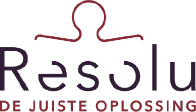The Netherlands had over 614 thousand households with registered problematic debts on October 1, 2020. That is 7.6 percent of all private households. Debts can have various consequences, such as causing stress, sleep and/or physical problems. But what happens when someone is in debt and in default?
Attachment
If there are debts, then in extreme cases a creditor can seize benefits or wages. So, for example, this could be wages from employment, but also sickness benefit, WW, WGA benefit or any other benefit. If the benefit is paid by the UWV, then wage garnishment can be placed on the benefit through the UWV. A creditor is not allowed to attach a portion of the benefit/wage; this is called the attachment-free foot. The non-distraint amount is different for everyone and depends on several factors, including income and family situation. This is the amount a person needs to live.
Request wage garnishment received
Case managers in the Sickness & Disability Insurance Act & WGA also have to deal with (former) employees with debts. Some (ex-) employees are open about this, others are not. Is the (ex-) employer self-insurer? Then he or she may receive a request for wage garnishment. Resolu's case managers are familiar with this process, and know what information is needed to process or settle this wage garnishment. Also when the processing of the benefit from is done through Resolu.




